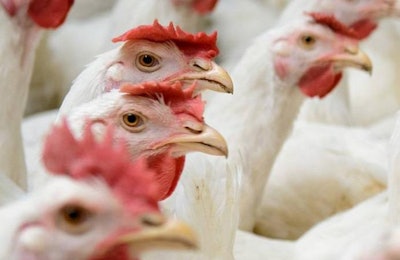
Growth in the Asian economy, rising living standards and increasing demand for animal protein would appear to offer enormous opportunities for those active in the poultry and other meat industries. Yet a new report cautions that investors in the region should temper their enthusiasm somewhat as environmental and social issues still need better management and, without this, there is a risk of reduction in long-term returns.
The warning is contained in the Coller FAIRR Protein Producer Index, which its publishers say is a “ground-breaking new index for investors”, and which analyzes how a US$300 billion group of 60 global food companies are managing crucial environmental, social and governance risks.
All analyzed companies have material exposure to the five main animal protein categories: beef, dairy, pork, poultry and eggs, and farmed fish. Companies with poultry supply chains have the largest representation in the index at 43 percent.
Each company has been given an overall ranking of “low”, “medium”, or “high” risk, based on its scores against eight sustainability risk factors. These are based on stakeholder understanding of environmental, social and governance issues, using company commitments, policies and disclosure.
In total, 52 percent of the index – or 32 companies, are based in Asia.
Health, business risks
Of all Asian companies assessed, 97 percent are ranked “high risk” for antibiotic use, compared to only 10 percent of European companies assessed.
Looking specifically at China, the world’s largest user of antibiotics in livestock production, 15 out of the 16 meat, fish and dairy companies assessed were given the worst high risk ranking for having few or no measures in place to reduce excessive use of antibiotics.
According to Maria Lettini, FAIRR Initiative director, Asian animal protein producers are ignoring calls from regulators, health professionals and the financial community to manage and reduce their use of antibiotics. That failure puts both global and public health, and their business models at risk.
The report goes on to claim that Asian animal agriculture is undermining the Paris Agreement on climate change, saying that 90 percent of the Asian index companies were ranked high risk for failing to manage or disclose their greenhouse gas emissions. This compares to 50 percent of peers in Europe.
Lettini continues that as mega trends such as climate change, antibiotic resistance and food technology radically reshape the way that meat, fish and dairy are consumed, the Coller FAIRR index will help institutional capital identify best in class companies in Asia’s food sector, and those at risk of long-term value destruction for failing to manage certain critical business issues.
High risk rankings, however were not restricted to Asia, and where Asia is concerned not all reports were negative. Asian companies were found to be showing leadership on food safety. Forty-four percent of the companies given the top ranking on food safety are from Asia, including CPF from Thailand WH Group from China, which were among only nine companies praised for traceability of food products and feed production.

















